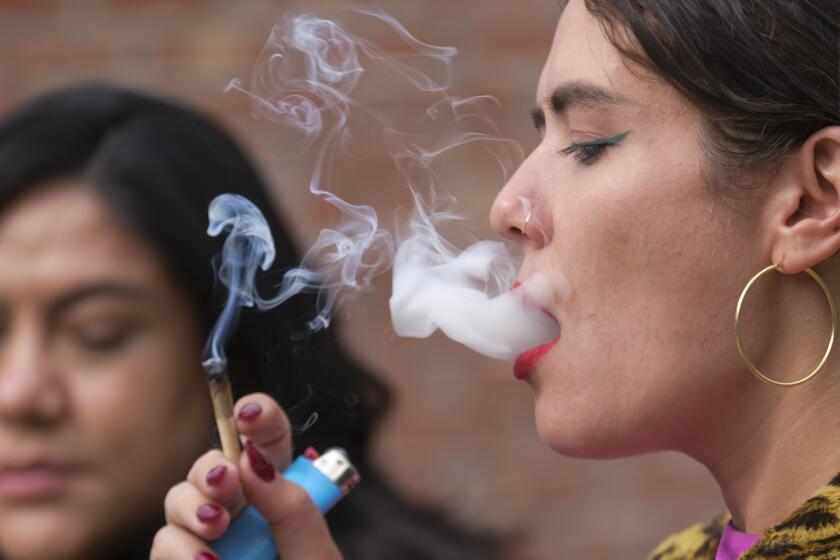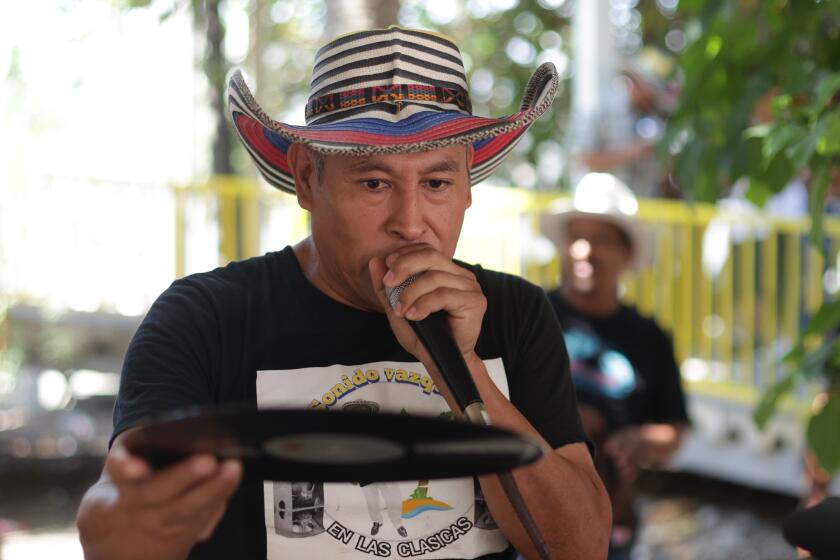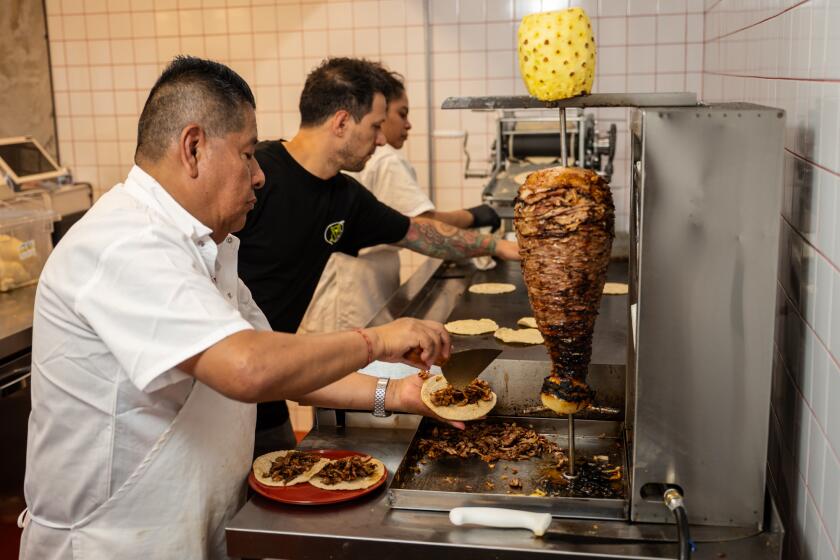
- Share via
A growing number of Latines are shifting the social pressure away from drinking while keeping the cultural aspects of Latine gatherings firmly in place. They’re building community and connection without alcohol and a lot of that has to do with the role it played in their culture and their families growing up.
For many Latines, it still feels counter-cultural to not drink the spirits they’ve grown up with like tequila, rum and cerveza.
The first meeting between Garfield High and Roosevelt High in girls’ flag football marks a new chapter in the longstanding rivalry.
But are these familiar drinks actually traditional to Latine culture, or are they a product of a deeper history, one that’s been negatively affecting these communities for centuries?
“My father passed away from alcoholism,” said Pablo Murillo, the founder of Bar Nuda, a Mexican-inspired alcohol-free pop-up in Los Angeles.
Murillo’s dad was a Mexican immigrant, and he remembers that alcohol was always around during his childhood growing up on Catalina Island. As he got older he realized Catalina was a very alcohol-centric environment.
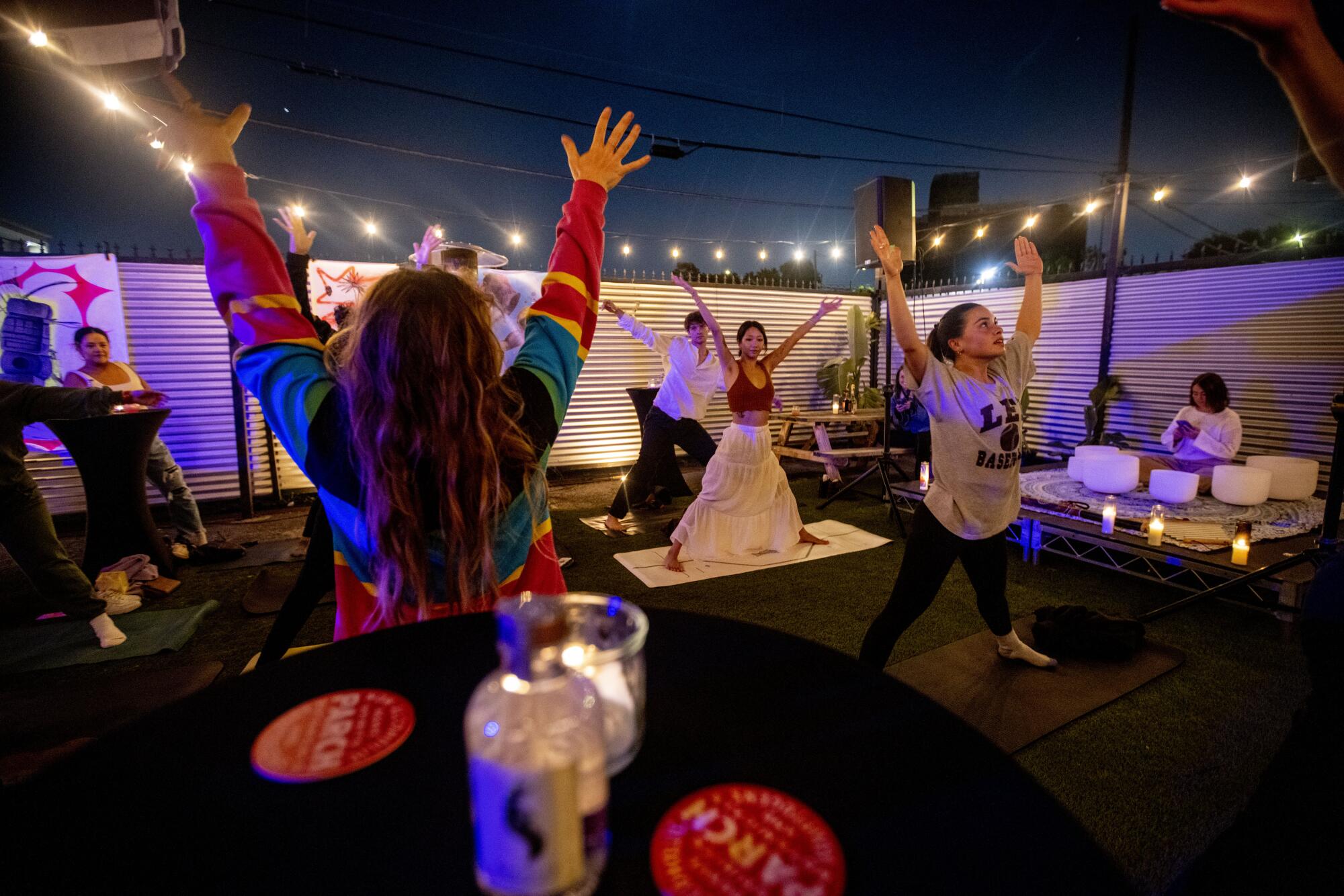
“[Alcohol] was kind of just a part of everyday life,” Murillo said, “He’d crack open a beer after work. And then on the weekend, it’s the same thing. And it’s kind of something that I just saw every single day.”
He says he didn’t realize his dad had a problem until his late teens, but by then Murillo had already started drinking himself, which began as early as 12 years old.
The Latinas in Cannabis Summit hosted in Echo Park brought together women in the industry to participate in in workshops and panel discussions.
It was because of those early experiences that Murillo decided it was time to get sober earlier this year. But after Murillo quit drinking he found it challenging to find alcohol alternatives that had the flavor and complexity of a cocktail. After doing some research, he realized there was a gap in the social scene for sober spaces that served mocktails, a spin on traditional cocktails that are alcohol-free.
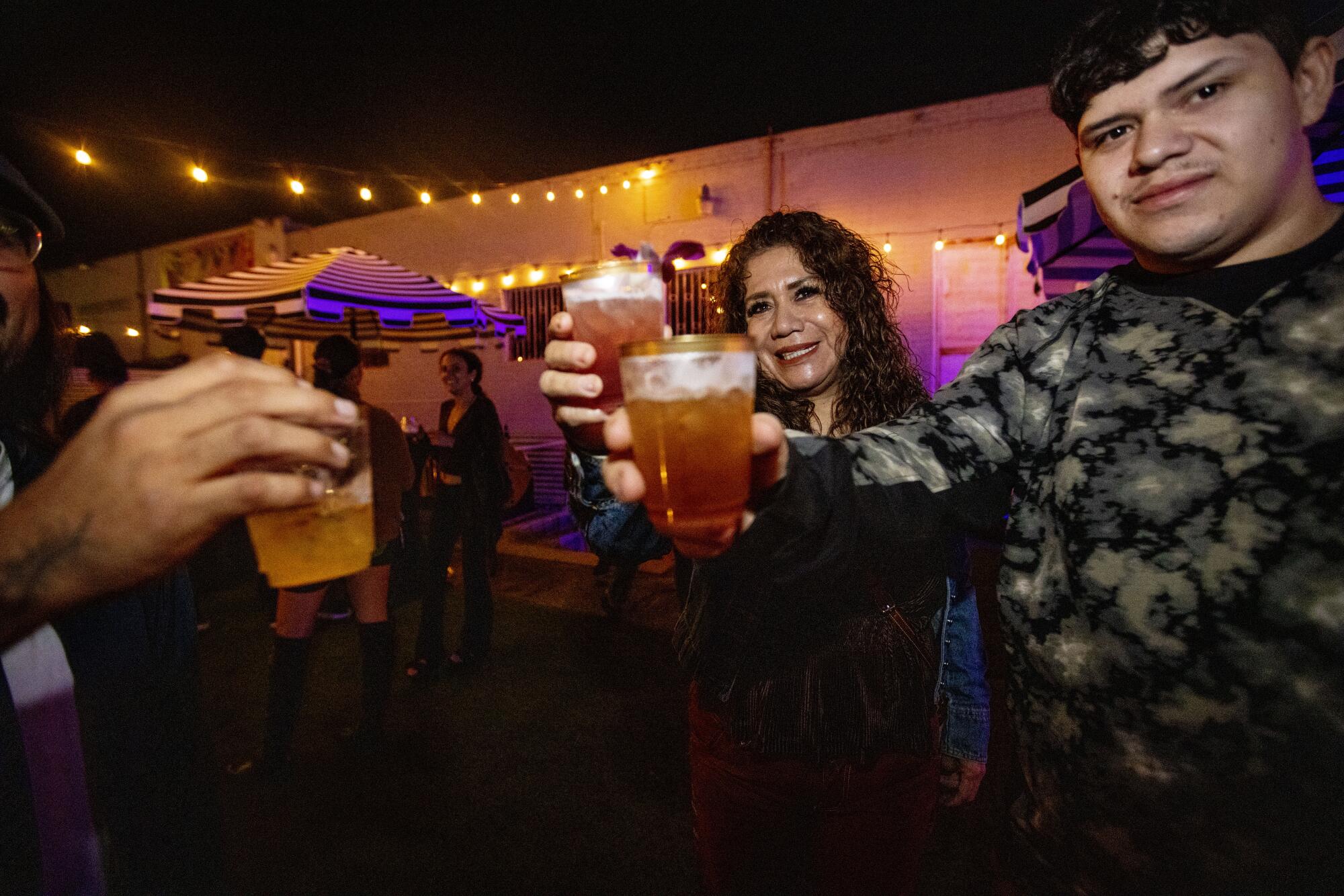
In April this year, he began his alcohol-free pop-ups across Los Angeles with co-founder Morris Ellis.
“We started Bar Nuda as a way to give people a safe space to go hang out and have a great time without the pressures of drinking booze and being able to wake up the next day and feel amazing,” he said.
For the mocktails, Murillo partnered with Bryant Orozco, a Mexican bartender who uses native ingredients for Bar Nuda’s signature drinks.
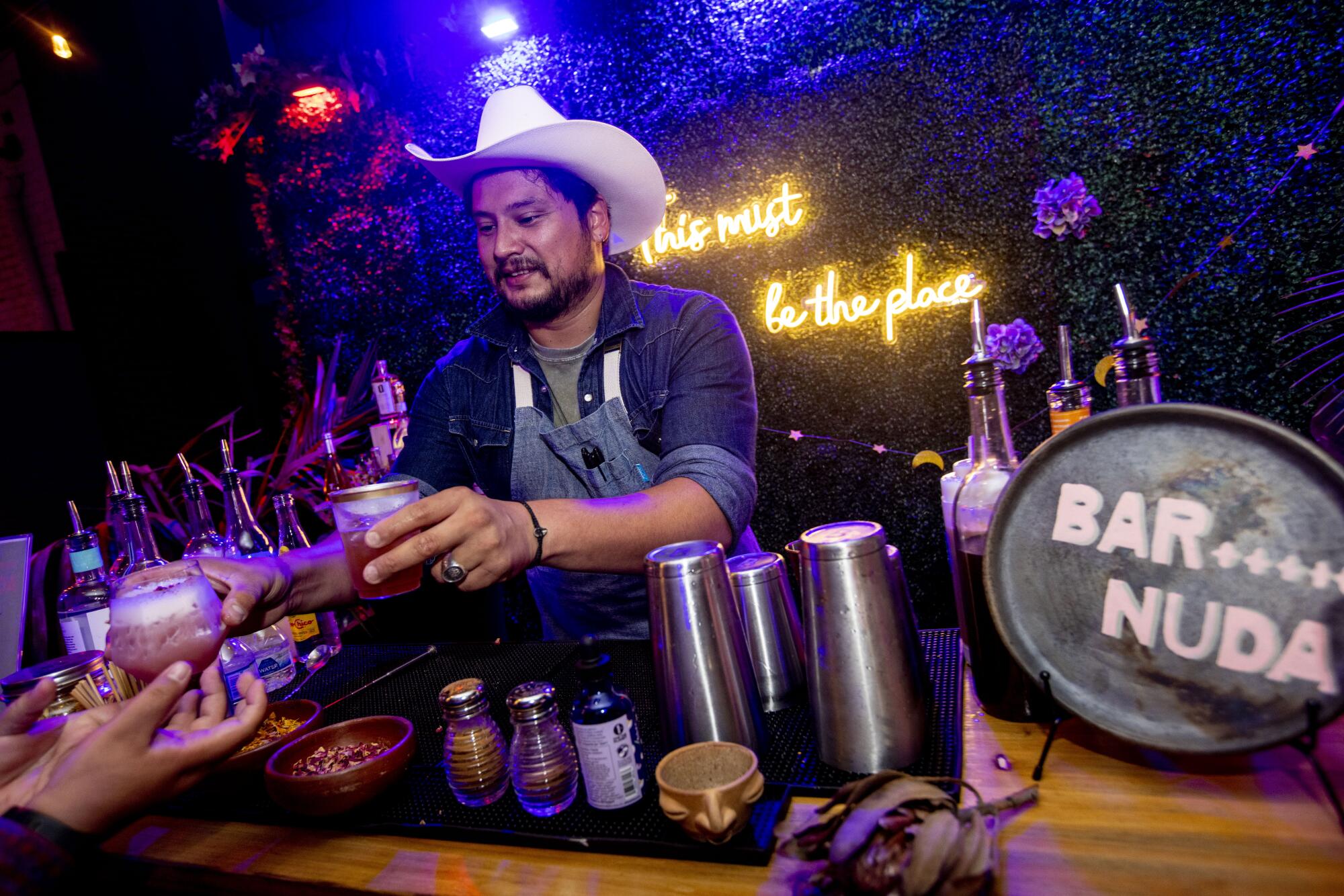
“For me, it’s very important we have a space for people who either identify as Hispanic or Latino,” said Orozco. “[These mocktails] represent our culture with our herbs or spices that I’m bringing from Mexico. It’s a way to say, ‘Hey, we can enjoy, we can have fun and create these spaces and environments.’”
For Orozco, it’s also about mental health and well-being for the community. “We’ve seen how our tios get. We’ve seen how people get in our families.”
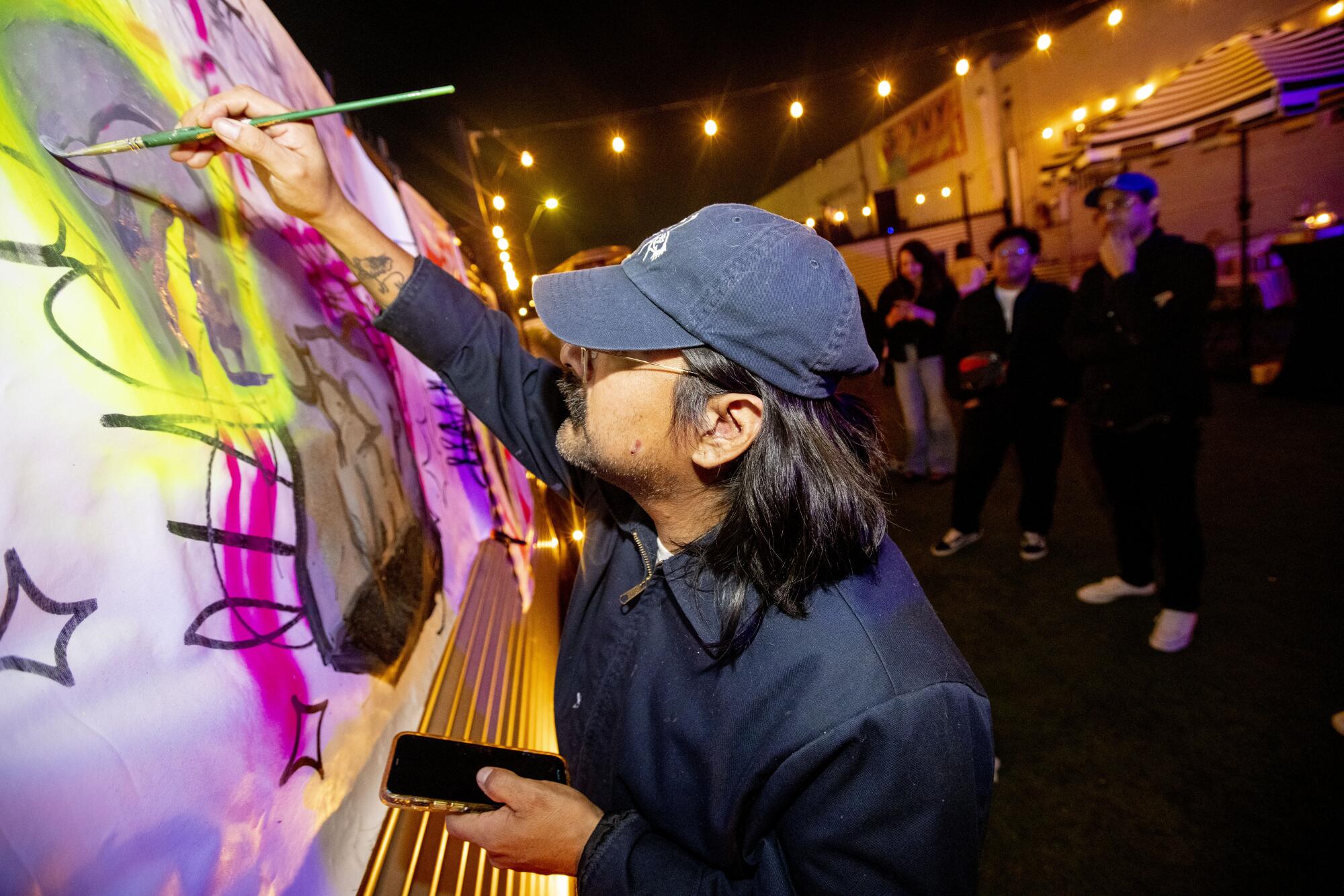
Statistics back up their personal experiences. Puerto Rican and Mexican men have the highest rates of binge drinking abuse, and the highest overall rates of severe alcohol abuse respectively, according to the National Institute on Alcohol Abuse and Alcoholism.
And when you take a look at the history of when distilled beverages became popularized in Latin America, you’ll find it was at the height of the colonial era.
Prior to the Spanish occupation of Mexico, distilled drinks like pulque, tepache and tesgüino were used by First Nations strictly during spiritual ceremonies or to heal specific ailments. After Spanish colonial rule, European distillation methods took over to produce new drinks like mezcal, tequila and sotol. After Mexico’s independence, the drinks were labeled national beverages while Indigenous drinks were seen as inferior and were shunned by the popular ruling class.
The barrios of La Indepe used to be the margins of the industrial city, but now they are encircled by urban development. Given the government’s initiatives, often presented as progress, these barrios are the last obstacle standing in the government’s way.
Similarly in the Caribbean, Spaniard distillation methods were introduced in Puerto Rico and surrounding islands using sugarcane, a product Spaniards mass-produced with African and Taíno slave labor. Distilled spirits such as cañita, and later pitorro, were introduced into the culture and gave way to brands like Bacardí, which is still made in Cataño, Puerto Rico, today.
After the Jones Act was established under U.S. colonial rule in 1917, the rum industry boomed, paving the way for increased alcohol consumption. Today, Puerto Rico produces 70% of the rum sold in the U.S., according to Discover Puerto Rico.
The normalization of alcohol consumption in Latine culture has put pressure on people to partake in what is now seen as tradition.
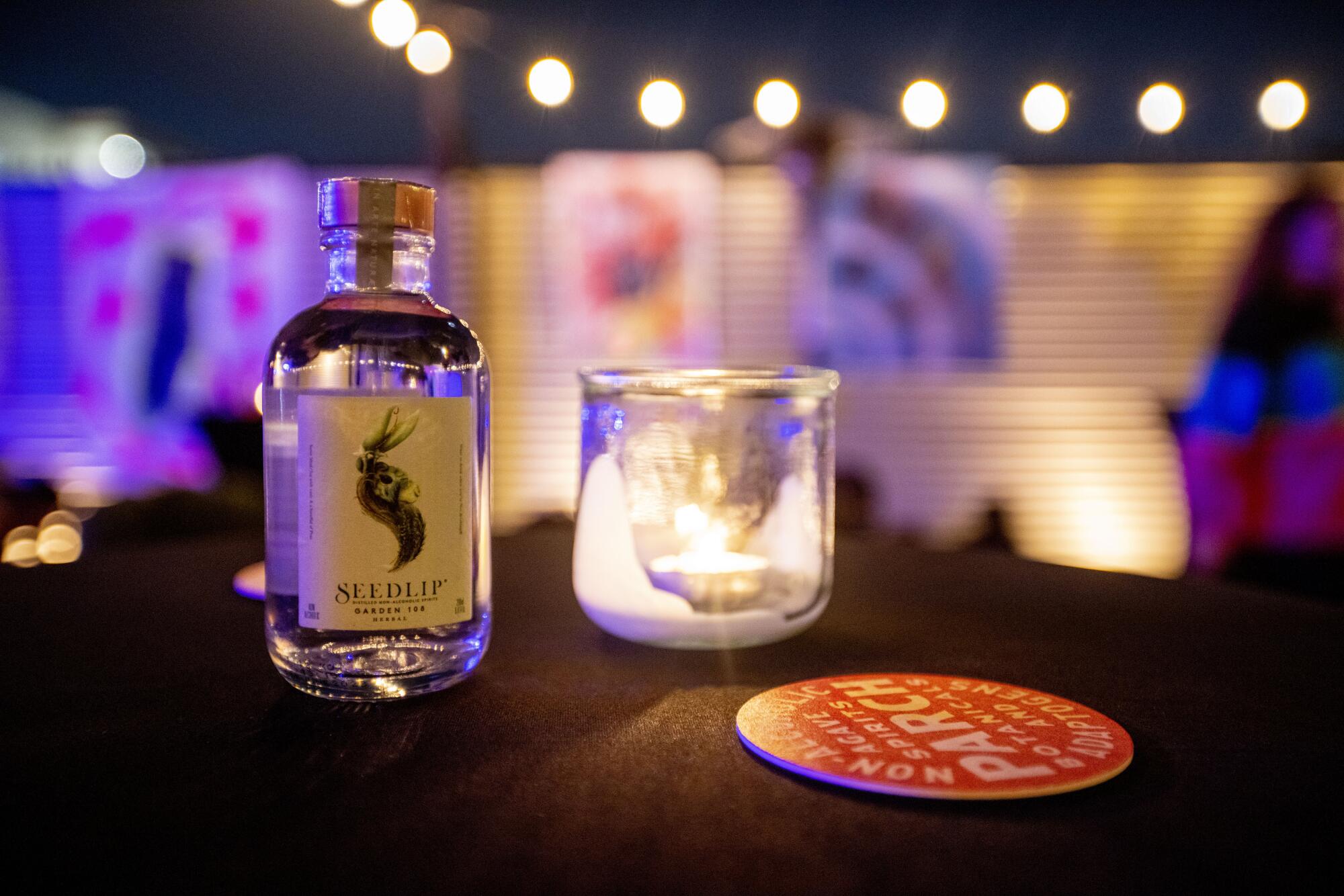
“At family parties and parties in general, tequila is such a big part of Mexican culture — cerveza is such a big part of Mexican culture,” said Adriana Gia Gaspar, the founder of In Good Spirits, an alcohol-free bottle shop and bar located in Chicago’s west town neighborhood.
“I used to drink a lot because I felt like I had social anxiety,” Gaspar said. “If you have this sort of anxiety or mental health problem, it was never addressed, there were no tools [in our culture].”
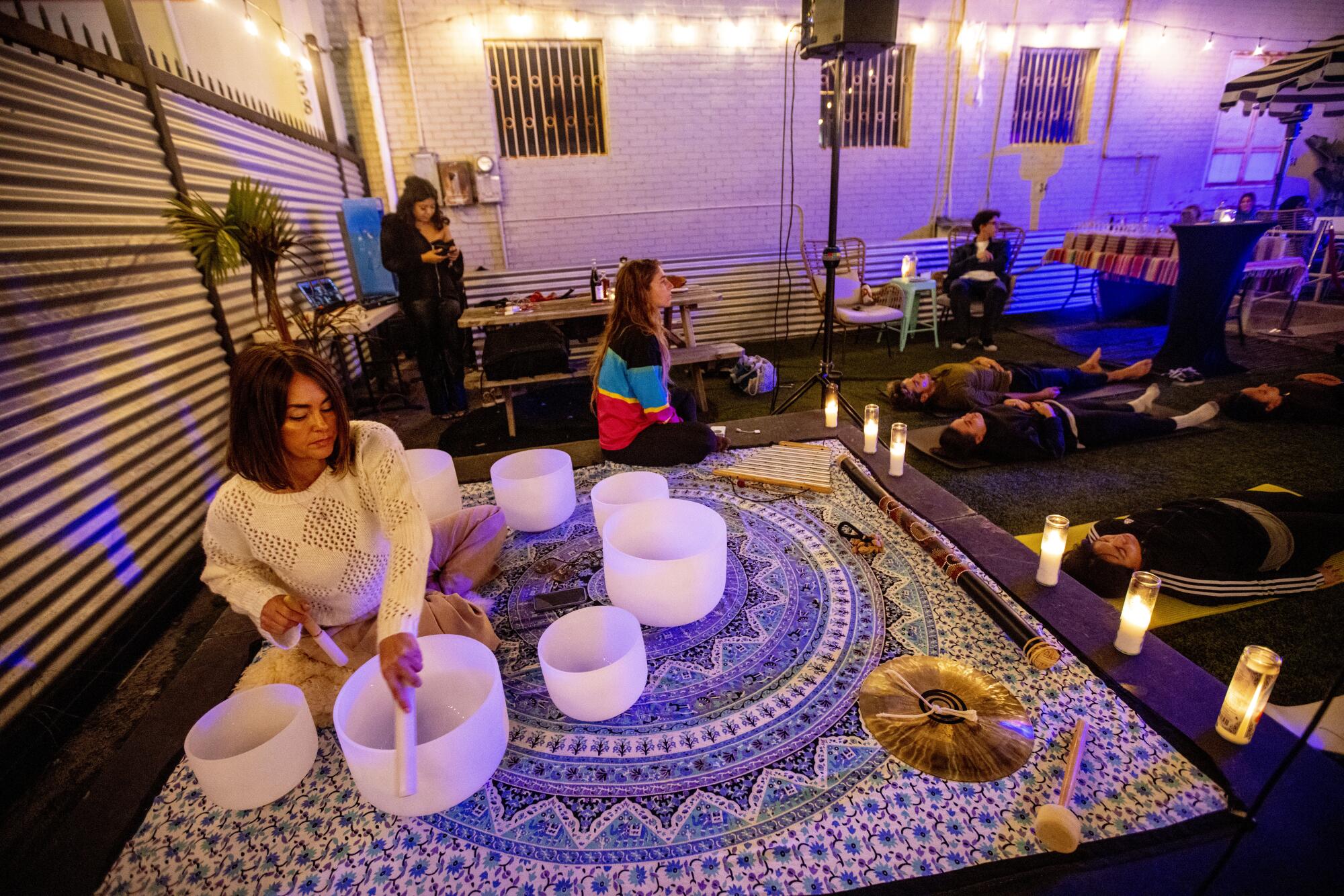
When most places were shut down during the pandemic in 2020, Gaspar went from drinking at social events to drinking more regularly, especially after her father was diagnosed with COVID-19 and died shortly after.
That November, Gaspar decided it was time to get sober in honor of her dad. “My sobriety journey was very personal in the sense that it was tied to my father’s passing. That was very difficult in the moment,” she said.
Like Murillo, Gaspar’s father was also an alcoholic and had long been in recovery.
In places like Atlanta, where Latinos make up a smaller percentage of the population, tacos are in high demand but traditional taqueros are scarce.
For the next two years of her sobriety, Gaspar learned about non-alcoholic mocktails, and in May 2022, she started setting up alcohol-free pop-ups throughout Chicago. Because of their popularity, she was able to open her first location for In Good Spirits and began serving a mixed crowd of fully sober and sober-curious people.
“They just want to be more mindful with their alcohol consumption or they’re generally just down to try something new,” she said.
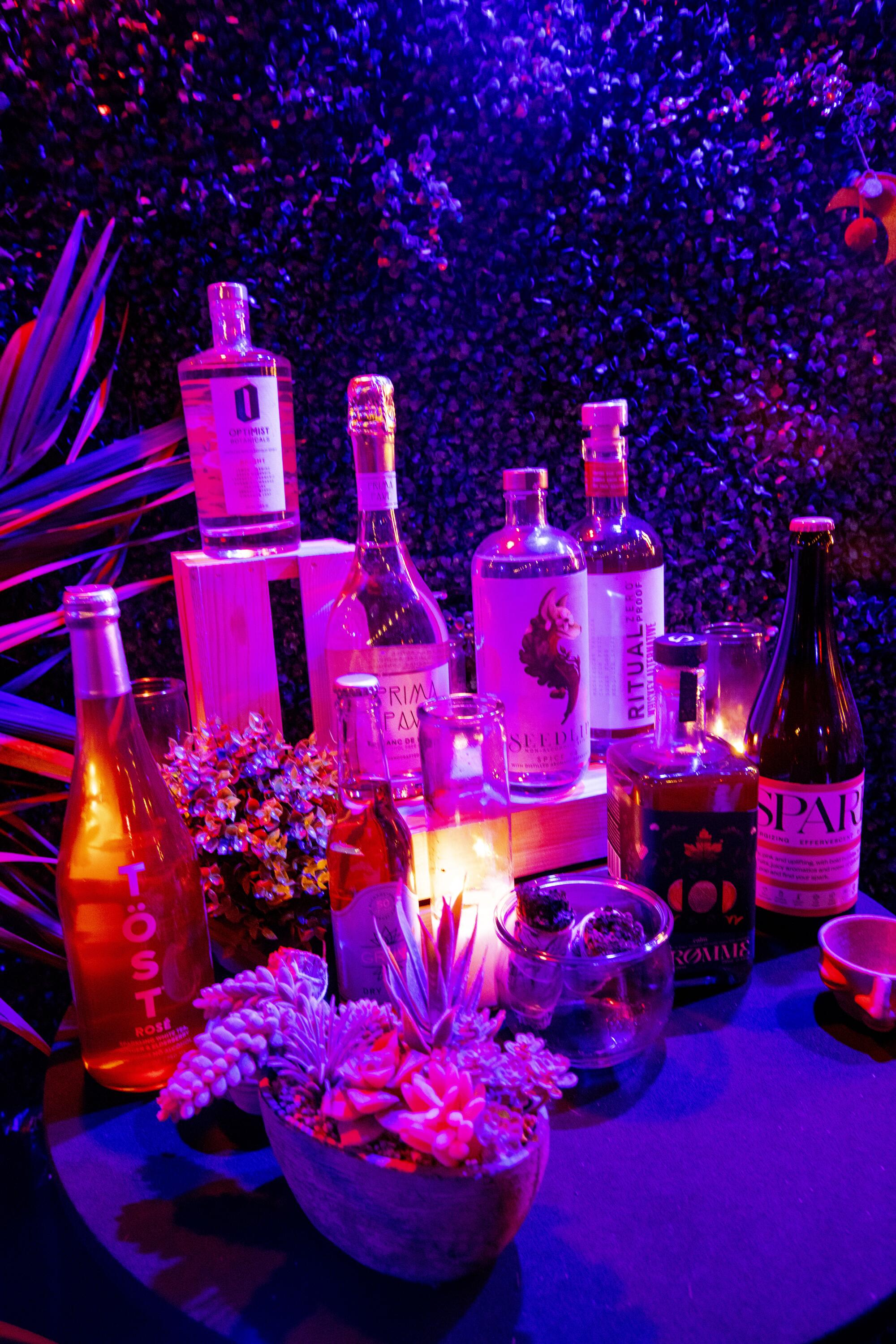
For Gaspar in Chicago and Murillo in L.A., they’ve both been pleasantly surprised by how many people are appreciative of their sober spaces. “You kind of just assume that everyone’s just drinking all the time!” said Gaspar. “It’s been really surprising for me to see just how many people are curious about what we are offering.”
For them and for sober Latines across the diaspora, having alcohol-free spaces is a way to foster inclusion and well-being, while dismantling the outdated standards of alcohol consumption that were rooted in colonialism.
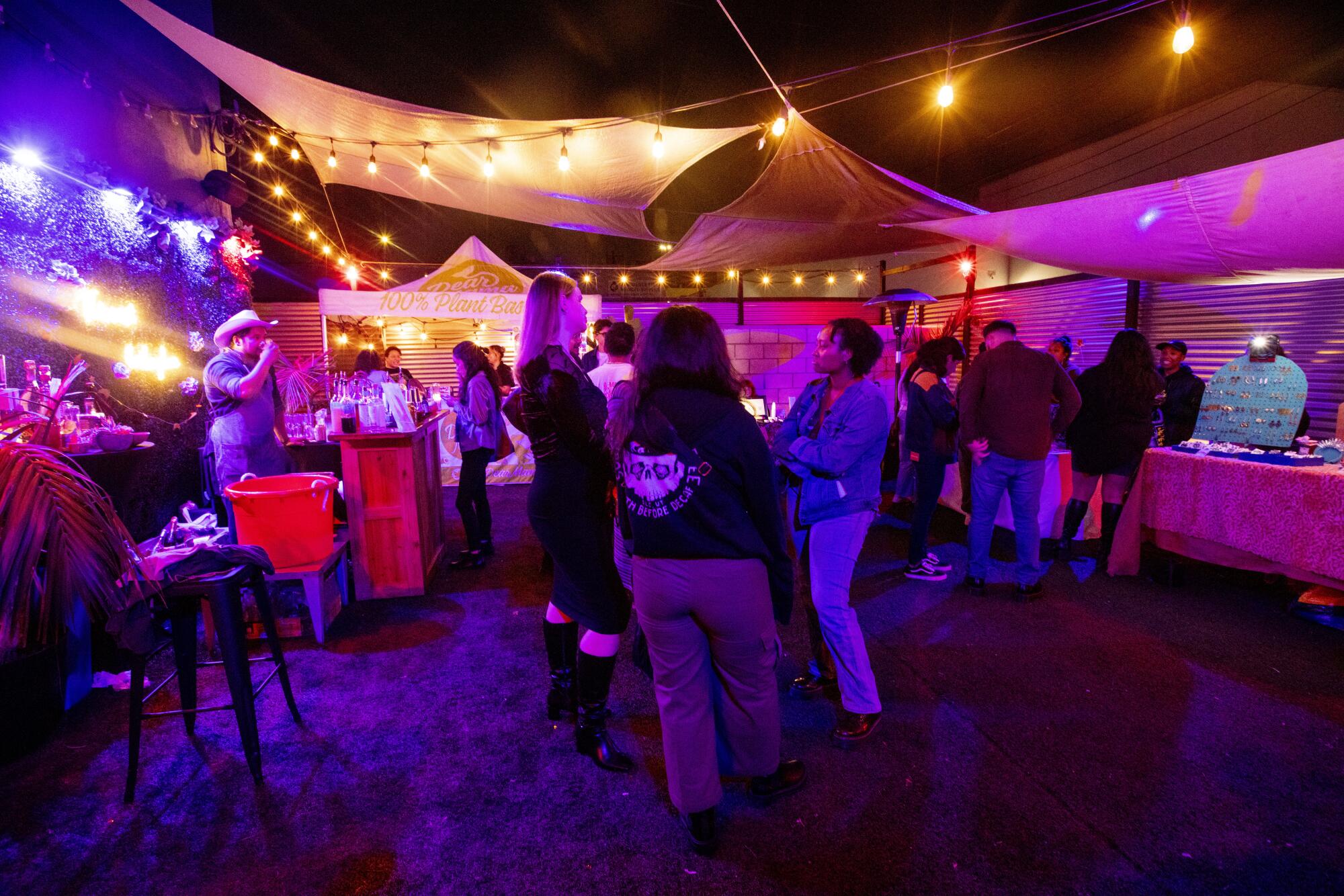
“It means so much more to people just to be able to partake in the ritual,” Murillo said. “And to feel like you’re not just being treated less than because you’re drinking a non-alcoholic drink.”
Constanza Eliana Chinea is a culture journalist, producer and social justice activist living in Los Angeles. She was the co-host and producer of a Spotify Original show and has been a contributor for the L.A. Times, KnockLA, The Young Turks, Latino Rebels and more. @eliana.chinea
More to Read
The Latinx experience chronicled
Get the Latinx Files newsletter for stories that capture the multitudes within our communities.
You may occasionally receive promotional content from the Los Angeles Times.

